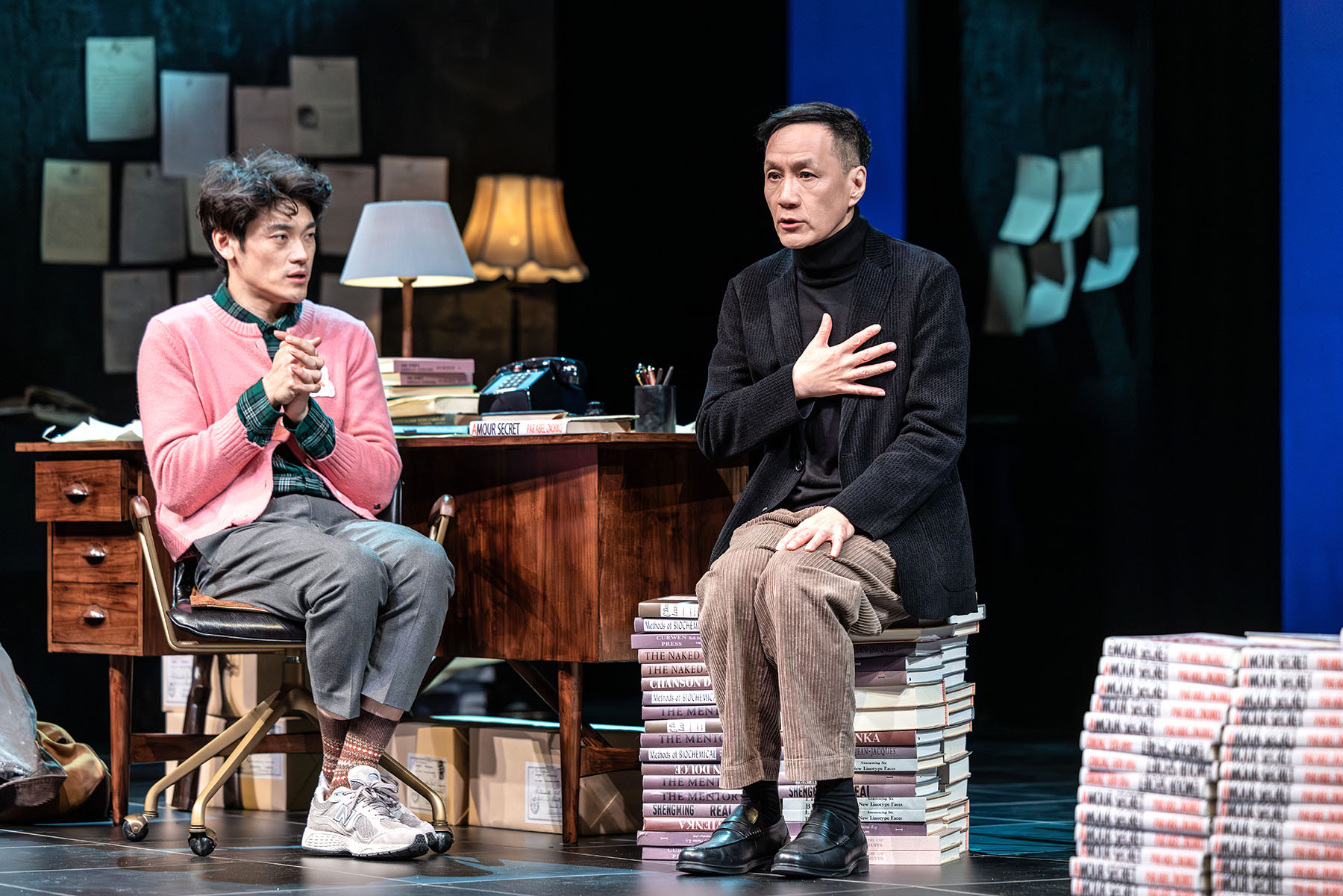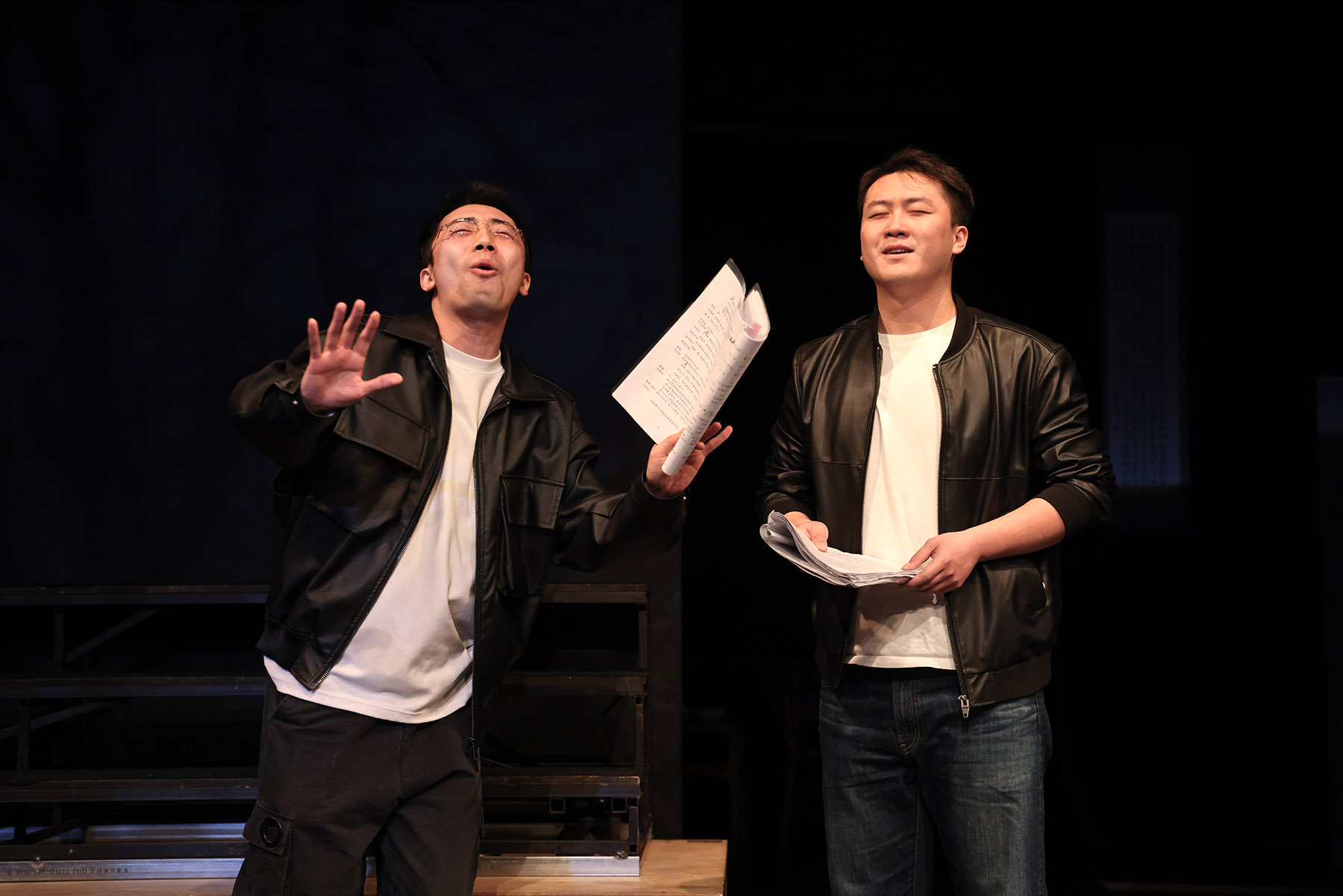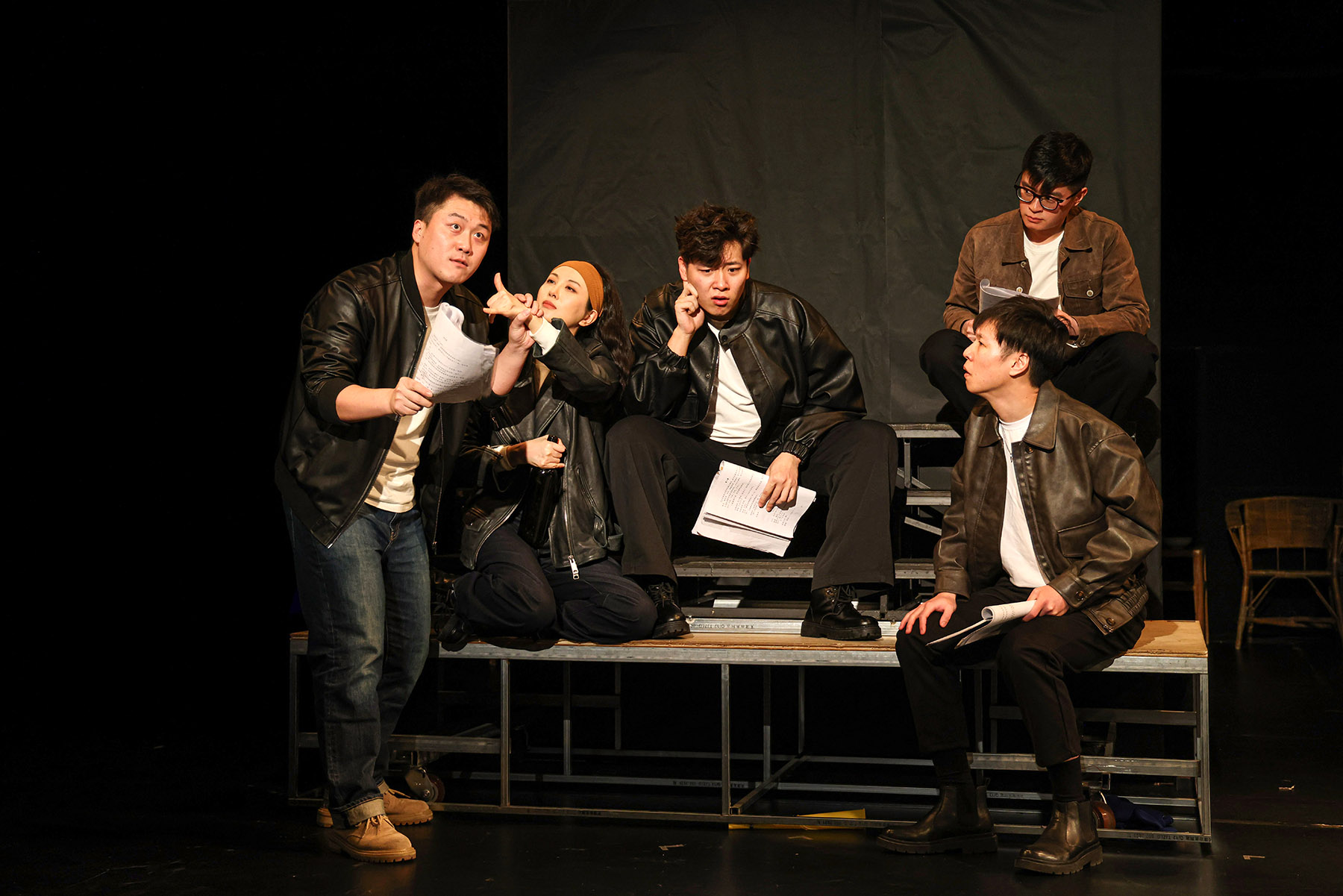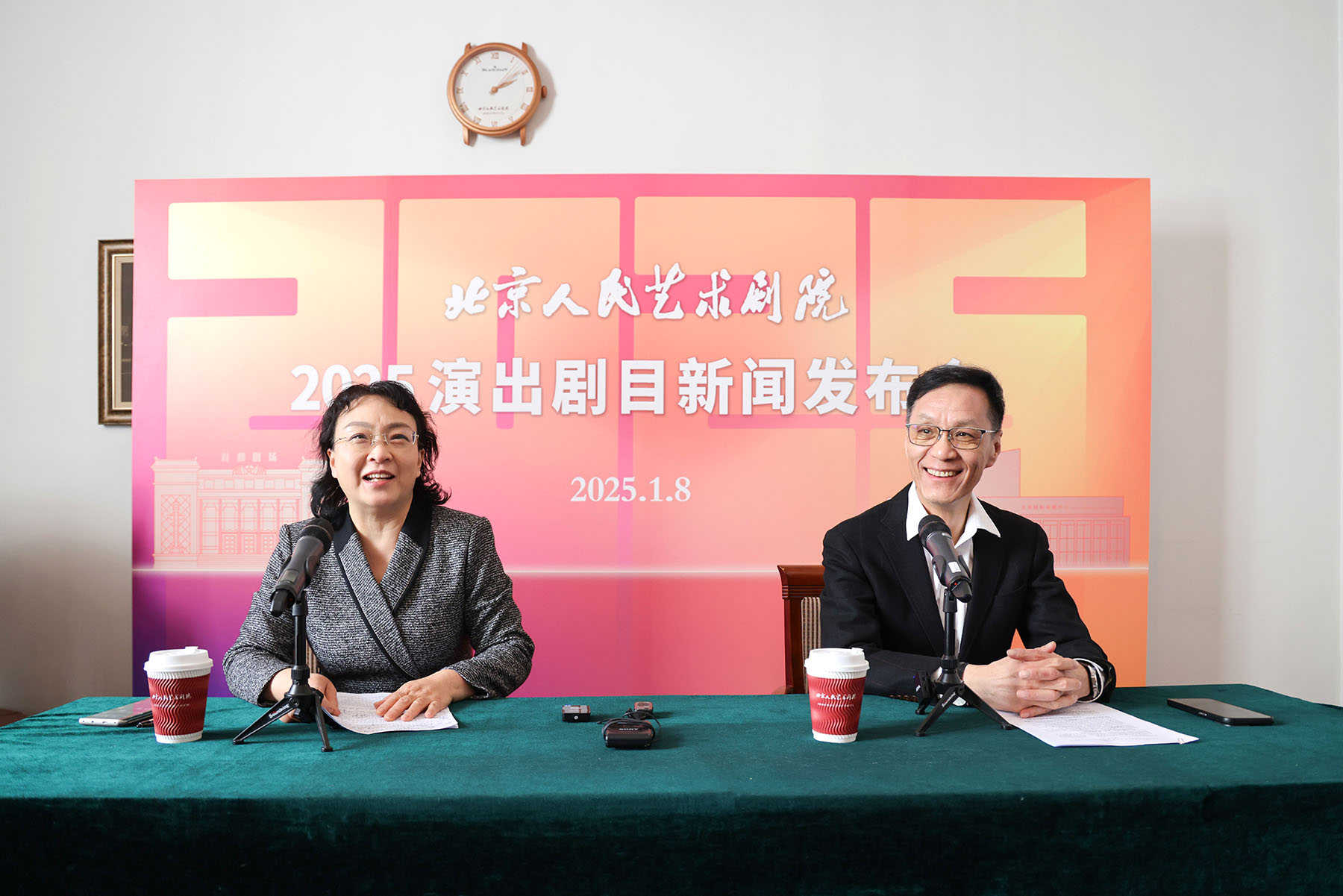Beijing People's Art Theatre has launched an ambitious plan to bring back some of the most iconic works in Chinese stage history, Chen Nan reports.

In the heart of Beijing, where the hum of modernity meets the echoes of tradition, a stirring movement is unfolding at the legendary Beijing People's Art Theatre. It's a movement that reverberates with nostalgia, cultural pride and artistic ambition — a plan to revive some of the most iconic works in Chinese theater history.
Through its latest initiative, the Classic Revival Plan, the Beijing People's Art Theatre is not only bringing back old plays but it is rekindling the very soul of Chinese drama, ensuring that these masterpieces continue to inspire and captivate new generations, said Feng Yuanzheng, a veteran actor and director who is also the president of the theater, in Beijing on Wednesday.
READ MORE: Minimal set, maximum impact
"The theater has more than 300 plays, which can be called 'treasures of the theater'. They are valuable assets passed down through generations, much like our family fortune," says Feng. "After reviewing the extensive repertoire, we chose 20 to 30 plays. In the next three years, we will revive one or two classic works every year, bringing them back to the stage with modern reinterpretations.
"The goal of the plan is to preserve and pass on the artistic and historical significance of these works to contemporary audiences, while also introducing them to new generations of theatergoers," he adds.

The first play mapped out in this initiative is Returning Home on a Snowy Night, a coproduction with the National Centre for the Performing Arts. Back in 2012, Ren Ming, the former president of the Beijing People's Art Theatre, directed this Chinese play, and Feng was one of the actors.
Originally penned in 1942 by playwright Wu Zuguang, the play was first performed in the 1950s and revolves around famed Peking Opera actor Wei Liansheng. Wei goes through both the peak of fame and the depths of despair. His tragic love affair with Yuchun, a concubine of a bureaucrat, costs them both their lives.
"We decided to revive this play because it's very beautiful and captures the emotional complexity of beauty intertwined with sadness," says Feng.
This classic will return to the stage at the Capital Theatre — the home of the Beijing People's Art Theatre — at the end of April, offering a fresh take that speaks to contemporary audiences.
The second major restoration is Lao She's Rickshaw Boy, which will be restaged in July. This production will serve as a symbol of the Beijing People's Art Theatre's ability to keep its classic works dynamic and relevant for new generations.
Feng also notes that the artists of the theater have started reviewing old videos and materials about Lao She's Rickshaw Boy, which premiered at the theater in 1957.
"We will take our young actors to Beijing's hutong areas to learn about the history of the work. The revival will be loyal to Lao She's original piece and presented based on the theater's first edition of Rickshaw Boy," Feng notes.
"The theater, with a history of over 70 years, is now going through a critical transition between old and new actors, with many senior actors retiring and young actors joining us," Feng says. "Through restaging, we want to provide opportunities for younger actors and directors to engage with these iconic works, allowing them to work with established artists, reinterpret, and continue the traditions of Chinese theater."

Last year, the theater had a successful season, with 35 productions and 509 performances staged in and outside Beijing.
On Wednesday, the theater unveiled its highly anticipated lineup for this year. Besides restoring classics, it will stage new productions, kicking off 2025 with Romulus der Grosse, a new play directed by Feng, starring Lu Lu and Yang Mingxin. The production, made for the experimental theater of the troupe, will premiere on Saturday. It blends comedy with seriousness and will take the audience through a unique "amusement park" experience.
For the upcoming Spring Festival — the biggest traditional Chinese festival — the theater will stage its Family Reunion, setting the stage to entertain audiences during the holiday. The play tells the story of a family spanning five decades. The Wang family lives in a traditional courtyard in a hutong alley in downtown Beijing and, for generations, they have been committed to the maintenance and repair of historical buildings. Since the play premiered in 2005, it has become one of the most popular plays in the Beijing People's Art Theatre's repertoire, especially during Spring Festival. Beneath the Red Banner, a play adapted from the Lao She novel of the same title, will also be staged during the festival season.
A special performance of Thunderstorm, directed by Pu Cunxin and Tang Ye, will take place in September to commemorate the 115th anniversary of playwright Cao Yu's birth. The renowned playwright was the first president of the theater, and Thunderstorm is considered one of China's most enduring 20th-century dramas. Since 1954, the Beijing People's Art Theatre has staged five versions of this classic play.
In September, a new production of Shakespeare's Romeo and Juliet, directed by Xu Ang, will bring together young creatives in a modern reinterpretation.

In November, Xiao Jun Zhi Qiu ("the autumn of a small town"), a new work directed by Tang Ye and Gong Lijun, adapted from the American play and film August: Osage County, will be staged, exploring themes of family and relationships in a domestic setting.
To commemorate the 120th anniversary of playwright Jiao Juyin's birth, the theater will host an exhibition celebrating his legacy. Teahouse, one of the theater's most popular and iconic works written by Lao She, will also be staged.
ALSO READ: Exhibition gathers prestigious drama troupes for global exchanges
This year also marks a milestone for the theater in terms of cultural exchange. It plans to increase its international presence, participating in the 11th Silk Road International Arts Festival in Shaanxi province. In October, it will organize the 2025 Beijing People's Art Theatre International Drama Invitation Exhibition, an annual event bringing together acclaimed international and domestic drama troupes to Beijing.
Another major focus for the Beijing People's Art Theatre in 2025 is expanding its public service role. With initiatives such as community theater performances and educational outreach, the theater is committed to making the arts more accessible to the public. In the new year, the theater will recruit students from universities in Beijing, Hebei province, and Tianjin. Through theater workshops and lectures, it will host activities to strengthen the connection between the theater and students.
Contact the writer at chennan@chinadaily.com.cn


